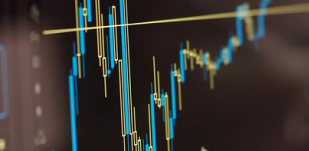What is a Spot Trade?
A spot trade is a foreign exchange agreement between two parties to buy one currency by selling another at an agreed price on an agreed date (usually up to two working days later).
Spot trades are the simplest, quickest and most common type of currency exchange. With a fixed spot rate that tells you exactly what the transfer will cost, you have all the information you need to make your exchange straight away. This is useful for simpler transactions like paying for goods or services, or receiving funds from foreign revenue.
Is a spot trade instant?
Spot trades are generally booked with a same day, next day or spot value date (known as T+2). The value date is the day on which the purchased currency will be released, providing the sell currency has been received. Trades needed for longer periods of time can be booked using a forward contract.
A quick example of how a spot trade works:
- Justine owns a travel booking business in the UK but pays her foreign contractors such as tour guides and transport operators in euros and needs to purchase €50,000.
- She speaks to her Clear Treasury account manager who gives her the current spot rate on the pound versus the euro so she knows exactly how much she’ll have to spend in pounds to get that €50,000. Justine wants the EUR funds sent out in two days.
- Justine agrees to the spot rate, transfers her pounds to Clear Treasury and has her euros sent directly to her suppliers on the selected value date.
Key terms
Spot rate - The spot rate is the set exchange rate for the transaction.
Spot date - The spot date is the day the transaction takes place.
Value date - The value date is the day that the purchased funds are released, provided the trade has been paid for.
You may see spot trades referred to as a spot FX or forex trade, spot deal, spot transaction, or even simply a spot.
Related Articles
Daily Analysis: GBP/USD Hits 14-Month Lows Amid Severe Economic Uncertainty
Our daily analysis of EUR, GBP and USD.
Read more
Weekly Round-Up & The Week Ahead
Our weekly round-up and a look at the week ahead for EUR, GBP and USD.
Read more
The Rise of B2B Cross-Border Payments
Businesses that wish to protect their overseas markets or expand their international trade, must innovate their payments processes internally, or in concert with a technologically advanced fintech provider. Read on to discover more about the rise of cross-border B2B payments and what your business needs to do to stay ahead.
Read more


